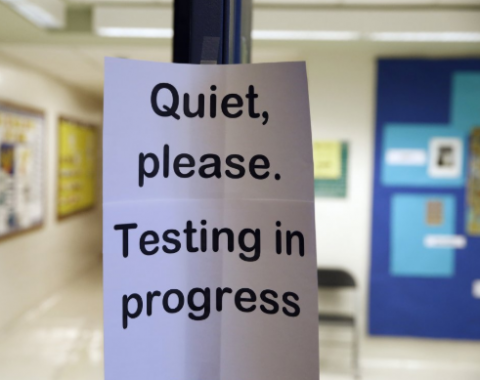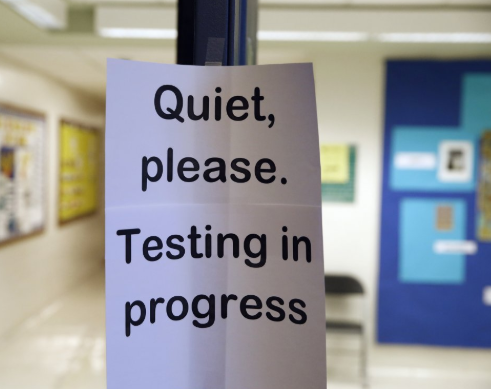Sept. 12, 2019 2:10p
(WPR)---After several years of modest increases, Wisconsin students' math scores declined during the 2018-19 school year, according to the latest data from state education officials. Proficiency in English was also down slightly.
The state Department of Public Instruction released the latest scores for the Wisconsin Student Assessment System on Thursday. The report includes test results from the Forward Exam, taken by students in third through eighth grade, and the ACT, a national college admission test taken by 11th-graders.
Overall, student scores in math decreased slightly during the 2018-19 school year. The decline comes after three years of modest increases in math scores: 40.1 percent of all students were proficient or advanced in math in testing this spring, compared to 41.1 percent in spring 2018 and 40.5 percent in 2017.
Viji Somasundaram, director of DPI's Office of Student Assessment, said students' math scores over the last few years have been impacted by new state standards.
"The new standards that we have adopted five or six years before are much more rigorous than the previous standards that the students were instructed to," Somasundaram said.
She said DPI will be looking into possible reasons for the latest decline in math scores.
Overall math performance did improve for Hispanic students and students learning English in Wisconsin.
While the percentage of all students scoring proficient or advanced in math declined, a higher percentage of Hispanic students met the milestone in third, seventh, and eighth grades compared to the 2017-18 school year. For students classified as English learners, a higher percentage scored proficient or advanced in sixth through eighth grades despite a decline in the percentage of all students meeting the standard.
Overall performance in English also declined in the latest report, going from 40.6 percent of students scoring proficient or advanced in 2017-18 school year to 39.3 percent last year.
Elizabeth Tomev, education information services director for DPI, said part of the declining scores comes from challenges with funding. She said students are entering the classroom with more challenges than ever before.
"We have to make sure that we have the funding to make sure that we meet all of the needs of the students when they need it," Tomev said. "And that includes helping with effective instruction, making sure children are feeling safe and supported, making sure they have the mental health supports that are necessary, any of that."
She said increased funding for K-12 schools in the latest state budget is "an important down payment" on the investment need in public education.
DPI officials also recognized the achievement gap between black and white students continues to be a problem for the state.
Somasundaram said that gap improved slightly because white students are not scoring as well as during previous years.
"In some areas, we see that the achievement gap closed a little bit but it's because of the decrease (in white students' scores) that we are seeing," Somasundaram said. "So that’s what we saw last year, it's what we are seeing again this year."
This year’s Wisconsin Student Assessment System report did not compare science test scores to previous years because students took a new version of the science assessment in spring 2019.
Somasundaram said the new test and state standards represent a "three-dimensional approach" to science instruction.
"We know whether students can do science," she said. "The Forward Exam engages students in work such as evaluating models, using evidence to support claims, distinguishing patterns, defining experiments and selecting which question will inform cause and effect determination."
Wisconsin Public Radio, © Copyright 2019, Board of Regents of the University of Wisconsin System and Wisconsin Educational Communications Board.

